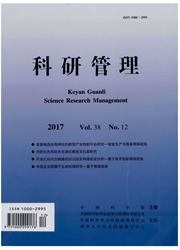

 中文摘要:
中文摘要:
创业失败是学习的一种重要情景,甚至比创业成功更具有信息价值,而创业研究却忽视失败视角,割裂了失败与成功之间的关系。为了更好地理解创业失败经历是否有助于日后创业成功这一核心问题,本文构建了创业失败、失败学习和新创企业绩效的理论模型,并通过对147份有效样本的实证研究得到了以下发现:创业失败与失败学习、新创业企业绩效均呈非线性倒U关系,即随着创业失败次数和失败程度地增加,创业者的失败学习水平和新创业企业绩效也会随之增加;但是当失败次数和失败程度超过某一个阀值点以后,经历过多地失败反而会导致失败学习水平和新创企业绩效降低;而失败学习与新创企业绩效有显著正影响,失败学习在创业失败与新创企业绩效之间起到中介效应作用。研究发现揭示出,并不是所有的失败经历都能等效地促进失败学习,适度失败才是最佳学习情景,最具有学习价值,善于从失败中学习才是走向创业成功的关键。
 英文摘要:
英文摘要:
Entrepreneurial failure is an important learning scenario, even more important than the value of information to business success. The perspective of entrepreneurship research often ignore the failure, separates the relationship between failure and suc- cess. To better understand the core issue whether the experience of entrepreneurial failure would contribute to future business suc- cess or not, a theoretical model was constructed, about the relationship among entrepreneurial failure (EF) , learning from the failure (LF) and new venture performance (NVP). And through an empirical research on 147 valid samples, the following con- clusions have been found that the relationship among EF, LF and NVP showed a non - linear and inverted U - shape feature. Numbers and extent of entrepreneurs' previous failure(s) will be positively associated with the level of learning and the growth of their subsequent ventures, until up to a threshold point where it will be negatively associated with both of them. LF has a signifi- cantly positive impact on NVP, and plays the role of mediating effect between EF and NVP. The findings revealed that not all failures can be equivalently promote LF. Moderate failure is the best learning situation, and has the most learning value. Being good at learning from failure is the key to business success.
 同期刊论文项目
同期刊论文项目
 同项目期刊论文
同项目期刊论文
 期刊信息
期刊信息
